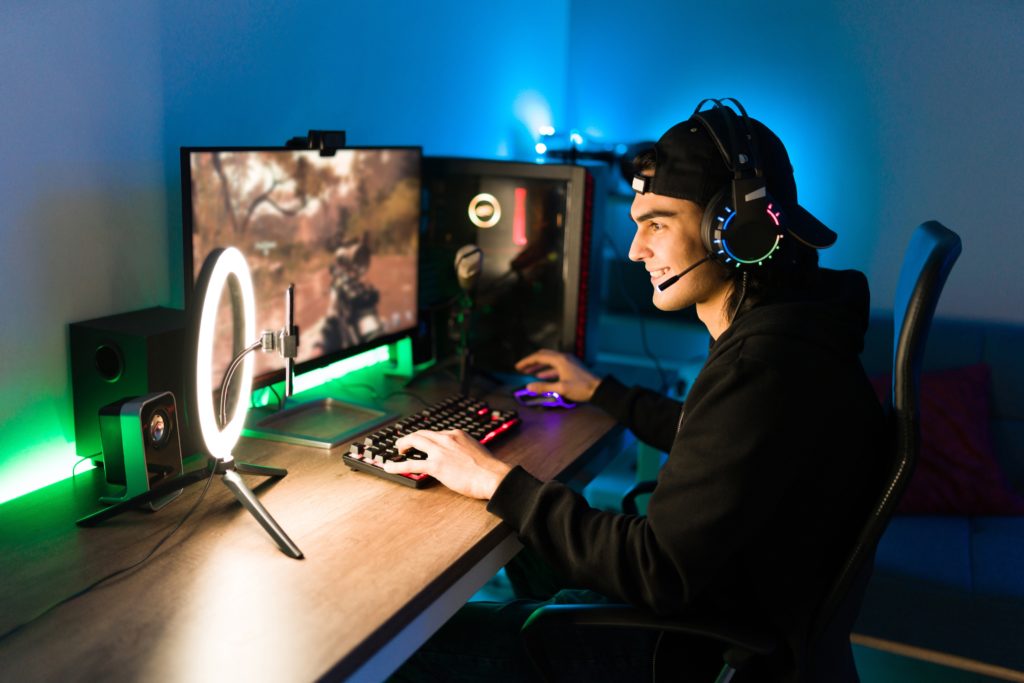Quick Hits
Daily brief research updates from the cognitive sciences

Iconsidered many titles for this short review. It could have read “Gaming Improves Mental Health of Teenagers” – that may have garnered a few more clicks – not stricly true though. It could also have read “Gaming Has No Impacts on Mental Health of Teenagers”, however, the data can be seen in two ways.
So, I settled on the simple question so as not to mislead too much. But the long and short of it is that we do not need to be overly concerned with gaming rotting our kids’ brains, causing emotional withdrawal, and a host of mental health problems. In the vast majority of cases there is no impact and in a sizable proportion heavy gaming seem to improve mental health! So, let’s dig into what this study did and didn’t find.
This data comes from the 2021 OxWell survey which analysis data from surveys of school children between 12 and 18 in the UK. This dataset had 12’725 participants. And what did they find?
They found that:
- 31.2% play games for at least 3.5 hours a day – this is the “heavy gamer” group
- There was no significant correlation between playing games and mental health issues
- 8% reported not gaming
- They classified 6 types of gamers
- 8% were classed as maladaptive (i.e. experience negative effects)
So, on average no real cause for concern. However, there are some surprising and worrying results also. One surprising result is that 44% of heavy gamers experienced higher well being than those who games less or not at all. Who would have though it? On the negative side there is, indeed, a subgroup who do experience negative effects. A small proportion of the heavy gamers experience a loss of control and wellbeing issues.
A notable subgroup was the 2% who are classed as maladaptive phone gamers, playing mostly on their phone, being mostly female, and are more likely to have experienced abuse and other traumatic events. This seems to point that traumatic life experience are pushing some individuals to maladaptive behaviours – and this also opens the door to intervening and being able to identify these and hence also pre-empt the issues.
It therefore seems that gaming is not the cause of mental health issues but can contribute to underlying issues. Of course, the argument could also be that gaming reduces other activities and so can also over longer terms have a negative impact. However, I reported here that those who spent most time on social media were also most social in person – also a surprise. Whether this translates over to gaming, I don’t know, but good to know at least.
But for now, we know that gaming shouldn’t be a worry for parents or others in society, but we do need to be able to identify and support those who are prone to maladaptive behaviours – be that in gaming, or other areas.

Andy Habermacher
Andy is author of leading brains Review, Neuroleadership, and multiple other books. He has been intensively involved in writing and research into neuroleadership and is considered one of Europe’s leading experts. He is also a well-known public speaker, speaking on the brain and human behaviour.
Andy is also a masters athlete (middle distance running) and competes regularly at international competitions (and holds a few national records in his age category).
References
Simona Skripkauskaite et al
Time Spent Gaming, Device Type, Addiction Scores, and Well-being of Adolescent English Gamers in the 2021 OxWell Survey: Latent Profile Analysis”
JMIR Pediatrics and Parenting, 18.11.2022
https://pediatrics.jmir.org/2022/4/e41480/
More Quick Hits
Fresh Teams are More Effective and More Innovative
We all know that just about anything in the world is produced by teams. This has never been more true than in scientific disciplines…
Too Much of a Good Thing – Why Leaders Can be Too Extraverted
Extraversion is considered a positive trait particularly in leadership – but can there be too much of a good thing?
Gene Mutation Leads to Being “Clueless”
Researchers at the UT Southwestern Medical Centre have discovered a genetic mutation that impacts memory and learning.
Humble Leaders Make Teams More Effective
This study showed that those in groups with leaders who showed the highest humility reported multiple positive results all of which can be directly correlated to higher performance.
Micro Breaks Improve Performance and Wellbeing
We all know that taking breaks is good for our brain and wellbeing – in fact we absolutely need to take breaks. It is just the way our brain and body is designed.
Why We Share Posts on Social Media
Is it just pictures of cats that we share on social media? That is a cliché – most of social media does not have post of cats on them and all manner of things are shared.






